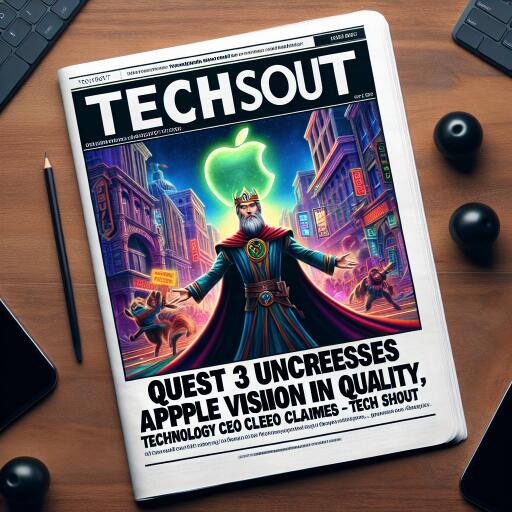Quest 3: A Formidable Contender in the VR Arena Against Apple Vision Pro, Claims Mark Zuckerberg
In the ever-evolving landscape of virtual reality and augmented reality (VR/AR), the competition is heating up with Meta’s latest offering, the Quest 3, being positioned directly against Apple’s Vision Pro. According to Mark Zuckerberg, the Quest 3 not only stands its ground but surpasses the Apple Vision Pro in several key aspects, making a bold statement in the high-stakes market of mixed reality technologies.
The journey of Meta, formerly known as Oculus VR, through the realms of AR/VR innovation has been nothing short of monumental, culminating in the development of the Quest 3. This latest iteration stands on the shoulders of over a decade of progressive advancements in technology, tracing back to the era of the Oculus Rift. The introduction of the Quest 3 marks a pivotal moment in Meta’s quest to dominate the mixed reality market.
The comparison between the Quest 3 and the Apple Vision Pro became inevitable, especially following insights into Meta’s perception of its competition. It’s believed that Meta views the rivalry with the Apple headset akin to the classic Android vs iOS battle, with the Quest 3 spearheading Meta’s charge into the mixed reality domain. Zuckerberg’s public commendation of the Quest 3 over the Apple Vision Pro adds a new layer to this competition, especially in light of Apple’s recent ventures into AR/VR signaling a validation of Meta’s long-term strategies.
Zuckerberg’s critique hones in on several critical comparisons that suggest why the Quest 3 outperforms its pricier counterpart. Among these comparisons, cost-effectiveness stands out, with the Quest 3 priced at a more accessible $499, starkly contrasted against the Vision Pro’s significantly higher price point. This aspect alone positions the Quest 3 as a more viable option for a broader audience, offering substantial value without compromising on quality.
The technical prowess of the Quest 3 is also highlighted by Zuckerberg, who points to its brighter display and a more expansive field of view as key advantages over the Apple Vision Pro. Comfort, too, receives notable mention, with the Meta headset designed for extended use without the discomfort reported by some users of the Vision Pro. Furthermore, the availability of a vast library of apps, including popular platforms like YouTube, ensures that the Quest 3 serves not only as a gateway to immersive gaming experiences but also as a versatile device catering to a wide array of user needs.
Despite the shifting sands of tech trends, with generative AI capturing the limelight in recent times, the Quest 3’s launch has reignited interest in mixed reality technologies. This resurgence emphasizes the importance of innovation, quality, and user experience in the on-going race for dominance in the VR/AR market. It underscores the notion that the battle between the Quest 3 and the Apple Vision Pro isn’t just about hardware capabilities or price points but about defining the future landscape of mixed reality itself.
As we look ahead, it’s clear that Meta’s investment into the metaverse and its accompanying hardware, represented by the Quest 3, is a testament to the company’s commitment to pushing the boundaries of what’s possible in the realm of virtual experiences. Whether the Quest 3 will indeed overshadow the Apple Vision Pro in the long run remains to be seen, but for now, it certainly makes a compelling case for those looking to explore the vast potentials of mixed reality technologies.








